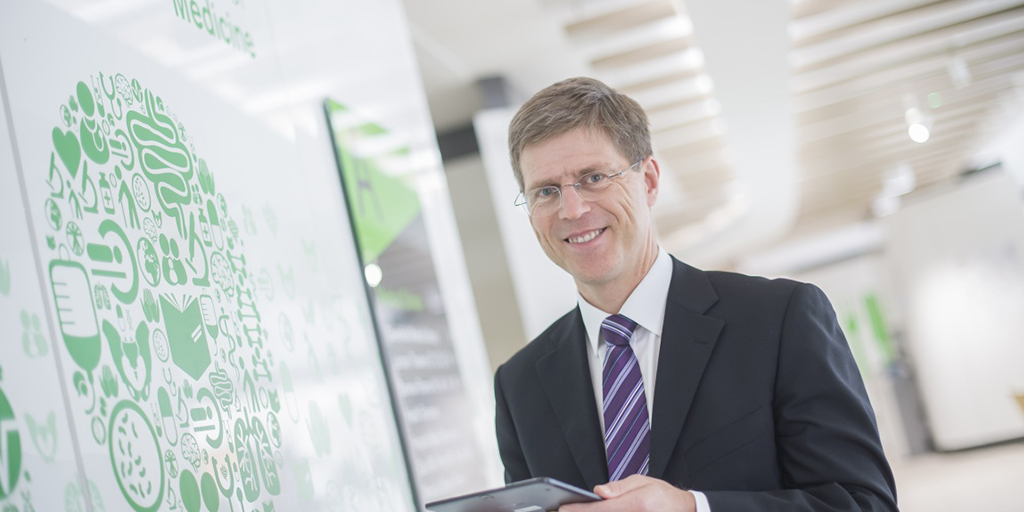March 29, 2021, by School of Medicine
50 at 50: Reflections on my time at Nottingham Medical School: Achieving excellence in primary care and applied health research
My first memory of Nottingham Medical School was attending for interview for a medical school place in 1980. To my mind Nottingham had the most exciting progressive course in the country, and I particularly liked the emphasis on medicine in the community. At interview Professor Richard Madeley asked what I would do if I had £1 million for the NHS, and I said I would buy a CT scanner. Some might say that was a good answer given the Nobel prize-winning fame that Nottingham has subsequently achieved in imaging; however, as a public health physician I think he was probably looking for a different answer! I received an offer from Nottingham but chose Sheffield for a variety of non-academic reasons. Nevertheless, I returned seven years later to join the Nottingham Vocational Training Scheme for General Practice, and towards the end of my training became interested in academic general practice.
I joined the (then) Department of General Practice as a clinical lecturer in 1992 and led on teaching while securing external research funding for my Doctorate in Medicine. Even in those days, the Department was thriving, with Mike Pringle and Tom O’Dowd as internationally leading lights in research, and an incredibly committed group of sessional lecturers delivering most of the teaching, including consultation skills teaching with actors in a purpose-built video suite.
Career progression could be rather rapid in those days; within two years I was a clinical senior lecturer and within six years I was Head of Department. Nevertheless, primary care was not very high on the pecking order within the Medical School, and our research had little impact outside our discipline. That started to change in the late 1990s and into the millennium with investment in early and mid-career academic posts, with seven of these now leading internationally excellent research at professorial level. We also improved our national standing, being ranked in the top five in REF 2008, and since then we have been members of the NIHR School for Primary Care Research. More importantly we are doing research that is having significant impact nationally including improving patient safety in primary care, reducing childhood accidents, reducing smoking in pregnancy, and providing electronic risk-reduction tools that GPs use in everyday practice.
Alongside our success in primary care there has been growth in other disciplines in applied health research, including Dermatology, Epidemiology and Public Health, Nottingham Clinical Trials Unit, Psychiatry, and Rehabilitation & Ageing. We have developed particular strengths in clinical database research and a 2016 publication showed that Nottingham was ranked 1st the world for primary care database research with three of our academics being in the top 10 authors worldwide. We have also done particularly well with NIHR funding. An analysis by Manjeet Mundey in 2018 showed that Nottingham was ranked 3rd in the country for Research for Patient Benefit; 4th in the country for NIHR Programme Grants for Applied Health Research (we have secured 12 over time; each worth in the region of £2m), and we have had 12 NIHR Senior Investigators (10 of these do applied health research).
Primary care teaching has also grown in importance with delivery of over 900 teaching and assessment sessions per year across all years of the BMBS course, and the allocation and delivery of educational clinical placements to over 1800 students. This is backed up by a dedicated team of administrators and primary care academics, with excellent feedback from students. For example, even in the pandemic we have maintained close to perfect scores from students for the supervision they receive on clinical placement, and very high scores for their experiences of seeing patients independently. Given the major disruption to primary care in the last year (with an increase in remote consultations) this is a phenomenal achievement and is testament to the care, commitment and organisational skills of the primary care educational team and general practices.
What about the future? Having established ourselves as one of the leading centres for primary care research and teaching in the country, we are keen to build on this success. The coming together of a wider group of colleagues, as part of current reorganisation within the School of Medicine, will facilitate even closer working and sharing of expertise. This provides us with an opportunity to build on our strengths in applied health research at Nottingham and do even more in the coming years to improve the health of the population while also training the next generation of doctors and researchers.
By Tony Avery, Professor of Primary Health Care and an NIHR Senior Investigator
No comments yet, fill out a comment to be the first


Leave a Reply